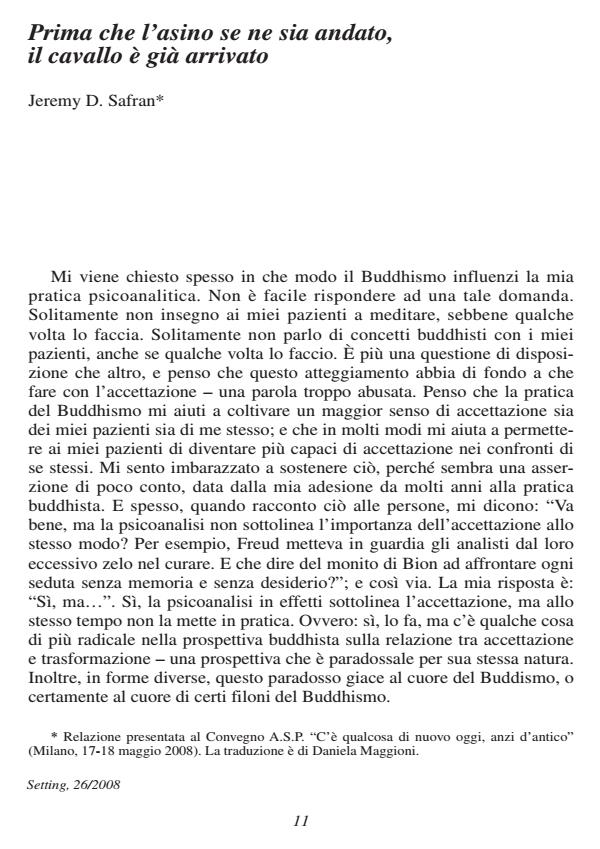Prima che l’asino se ne sia andato, il cavallo è già arrivato
Journal title SETTING
Author/s Jeremy D. Safran
Publishing Year 2009 Issue 2008/26
Language Italian Pages 16 P. 11-26 File size 582 KB
DOI 10.3280/SET2008-026002
DOI is like a bar code for intellectual property: to have more infomation
click here
Below, you can see the article first page
If you want to buy this article in PDF format, you can do it, following the instructions to buy download credits

FrancoAngeli is member of Publishers International Linking Association, Inc (PILA), a not-for-profit association which run the CrossRef service enabling links to and from online scholarly content.
Prima che l’asino se ne sia andato, il cavallo è già arrivato - In this article I explore some of the implications of the Buddhist perspective on nonduality and acceptance for psychoanalytic practice. Nonduality is a mode of experiencing that breaks down the distinction between categories that are conventionally regarded as opposites8e. g., good versus bad, pure versus impure, sacred versus profane, heaven and hell). The Buddhist perspective on nonduality is that the natural human tendency to think about things in dualistic terms is at the heart of the problem and that wisdom is the ability to experience things nondualistically. As long as we distinguish between things as they should be in some idealized state versus things as they are, we are unable to be fully open to, and appreciate the present situation for what it has to offer. I attempt to convey a sense of way in which the cultivation of a nondual perspective can lead to a radical and paradoxical perspective on the role of acceptance in the analytic process.
Jeremy D. Safran, Prima che l’asino se ne sia andato, il cavallo è già arrivato in "SETTING" 26/2008, pp 11-26, DOI: 10.3280/SET2008-026002